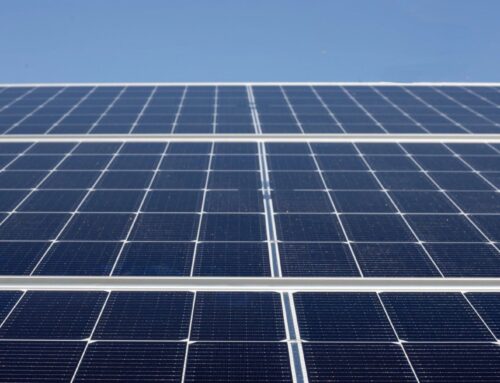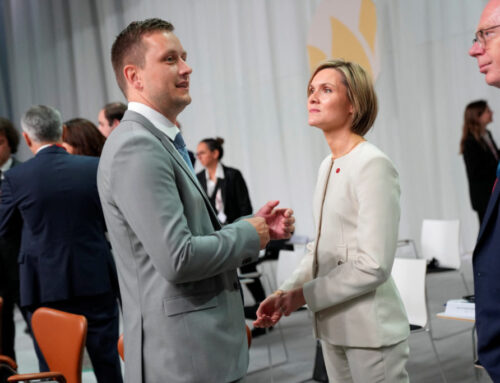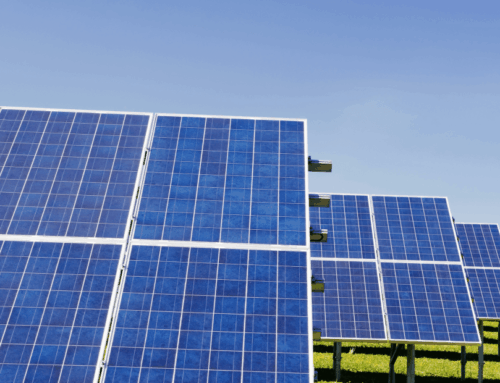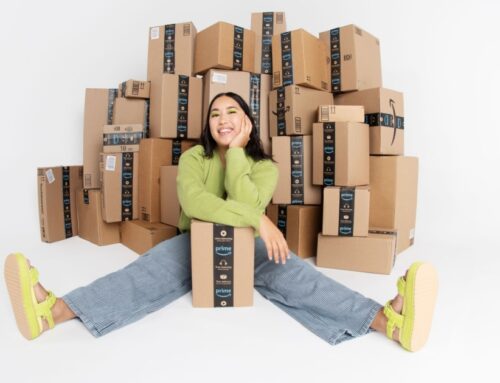6 rural Arizona towns, counties have limited renewable energy projects. More are looking i
October 8, 2025
A handful of communities around Arizona have approved rules that ban renewable energy projects.
Chino Valley, north of Prescott, is the latest. Its Town Council late last month voted to prohibit large scale solar and wind projects.
That follows other rural towns and counties, including Yavapai County and Mohave County, which have taken similar actions.
Wayne Schutsky from KJZZ’s Politics Desk has reported on this, and he joined The Show to talk more about it.
Full conversation
MARK BRODIE: How many communities have done this?
WAYNE SCHUTSKY: By my count, there are six, mostly like rural towns and counties, as you mentioned, that have, they’re not all doing full-out bans like Chino Valley did, but they’re restricting new solar or solar and wind development to varying degrees.
BRODIE: And are these places where there have been solar and wind development projects either proposed or maybe even started?
SCHUTSKY: In some cases they are places that have been kind of a magnet for these things. I believe when Mohave County put a moratorium in place, it was because of resident concerns that there were too many of these big solar facilities coming in.
You think these of the solar facilities, they need a lot of open space, so rural communities in Arizona with lots of sunshine are often in a magnet for them. Chino Valley, on the other hand, only really has one kind of moderately sized solar facility in town right now. So that one was more of a prospective ban.
BRODIE: So you mentioned that obviously they take up a lot of space that might be a concern for residents, but what are the other concerns? Why are people who say they don’t want these saying they don’t want them?
SCHUTSKY: There’s a host of things. Chino Valley had a big community meeting earlier this year. It was when the council initially directed staff to start working on this ban. They were actually initially working on ordinance changes to basically kind of change how they regulate these new developments …
BRODIE: To still allow them …
SCHUTSKY: Still allow them, but maybe regulate them tighter. And then everybody showed up and was like, we don’t want them at all, and that’s when they were like they voted to instead direct the ban, and people were upset about things like, you know, it’s kind of your typical NIMBYism. I mean, I don’t want a solar facility in my backyard. Others were worried about how close they would be.
There’s always in a lot of these meetings concerns about water consumption because there’s, and solar advocates will say a lot of that’s disinformation because on, by and large solar facilities usually use less water than other electric generation types.
There’s, they still use some water depending on the type of solar, just to clean the panels or whatever and, but by and large they use less. But, you know, a lot of people show up and they, you know, have heard this stuff at community meetings or online or whatever, and they have those concerns about water. There’s some environmental concerns about animals and how it’s going to affect the environment around them, so a lot of different things.
BRODIE: Well, as you reported, the at least in Chino Valley, I suspect in other places, the council members, the elected officials voting on these are basically just saying, look, we’re responding to what our constituents are telling us.
SCHUTSKY: Yeah, that’s what one councilman basically said in that, at that March meeting, is he’s like, regardless of how we feel about it, because for a town like that there are a lot of economic benefits, these type of things. There’s potential employment, there’s fees, taxes that are going to be paid, all that kind of stuff.
But they said, you know, people showed up and obviously they don’t want it, so that’s where we’re going. It’s, it’s worth noting that the people who showed up at that meeting weren’t actually Chino Valley residents. There were some, but some were like unincorporated Yavapai County, which, you know, live right on there, would be affected by this facility but aren’t necessarily members of that Town Council’s community.
BRODIE: So what are folks with the renewable energy sector saying about what kind of impact this might have if enough towns and counties and other communities say no thanks?
SCHUTSKY: I had one, you know, solar attorney told me that this is essentially the biggest roadblock to these new developments.
Like I’ve reported a lot on changes at the federal level under the Trump administration, changes at the state level by our Corporation Commission that may be are making it a less ripe environment to build solar and renewables, you know, getting rid of different subsidies and, making it harder to do that kind of thing.
But if you can’t get the local government where you’re actually going to build it to give you the zoning approval, then you can’t build it in the first place anyway. So you’re kind of stopped at Block 1. So it’s really is becoming a big problem for for this industry.
BRODIE: Well, what, what might it mean for a place like Arizona, which has seen demand continue to increase, that these projects that would try to help meet that demand are not being allowed to be built?
SCHUTSKY: Yeah, we’ve seen APS and some of the other major utilities in town double down on gas, for instance. They’re building a new gas pipeline and, you know, they all they do all have solar as part of their portfolio, but again what the solar advocates are saying, and they’re pointing to some actual like kind of financial data on this, is that right now renewables are actually kind of becoming more and more cost-effective as fossil fuels are going in the opposite direction.
And so we should be incentivizing that development. And this is kind of doing the opposite and so they argue that by limiting the amount of solar out there, you’re actually contributing to driving up utility prices for Arizonans.
BRODIE: Does it seem as though there is any thought of somebody suing or trying to challenge these decisions?
SCHUTSKY: I haven’t heard of any individuals, but one of the solar groups did bring up the thought that this might violate, Chino Valley specifically, might violate the Private Property Owners Protection Act, and in short, that’s a voter approved law from a few years ago that says you can’t cities and towns can’t do anything that devalues someone’s property essentially.
And so think of it. Someone has a plot of land before they could lease it to a solar company and make some money off that land. Now that’s one less use they can lease out their land for. That’s kind of the argument, but it would take a property owner affected by this actually filing a complaint with the attorney general to start pursuing this, and I haven’t heard of anyone doing that yet.
BRODIE: OK. From, from the people with whom you’ve spoken, does it seem as though there are going to be more communities taking up this issue and potentially also banning renewable energy development?
SCHUTSKY: Yeah, there are several communities now not maybe not overall bands like Chino Valley again, they’re kind of the most aggressive alongside Mohave County, which put a moratorium in place, but there are, I believe, five or so other communities.
I think Gila Bend’s in there, Surprise and Apache County, a few others that are considering tighter regulations on renewables or solar development to varying degrees. So it definitely is a trend that is taking hold, as a lot of people kind of don’t want it, you know, they hear some of the rhetoric coming from politicians about solar. They don’t, they hear the water stuff I talked about, or they just don’t want it in their backyard. And so it is definitely taking root.
Search
RECENT PRESS RELEASES
Related Post




